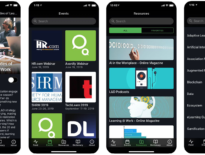If you don’t have the frontline managers, you don’t have the employees. This is true for any organizational change initiative. And it’s especially true for workplace learning and development.
Three years ago, I first wrote about the importance of management in fostering a learning culture. My thinking has evolved since then, but the overall premise remains the same: frontline managers are the most important people in workplace learning – period.
So, I figured it was a good time to revisit the role managers play in workplace learning and practical steps L&D can take to enable their impact.
Why Managers?
They control how work is done. This includes:
- Task assignments
- Time scheduling
- Priorities
- Resource access
- Training requests
- Feedback
- Opportunity
The list goes on. If a manager does not view learning as a critical and undeniable part of their team members’ jobs, it will be very difficult for employees to reach their full potential. Yes, they will learn by doing the work. Sure, they can pick up new information from their peers. But the manager can radically accelerate or diminish an employee’s development if they do not buy into the value of workplace learning.
First, Empathy
While managers may be a major roadblock for L&D today, I can’t say I blame them. First, they are under pressure to deliver results, often with minimal resources and support. It’s not surprising that they tend to focus on short-term goals and operational efficiency and not ongoing employee development. Furthermore, you have to consider a manager’s established mindset with regards to workplace learning. Has L&D clearly helped them execute on business priorities in the past? Or has training been more of a nuisance? Something that has to get done but doesn’t clearly impact business results? To many managers (myself included in past roles), learning at work still looks and feels like school. And there simply isn’t time for it if they can’t see exactly how it connects to the goals for which they are held accountable.
Help Them, Too
Are you trying to get managers to buy into a new approach to employee learning and support? Start by considering how managers are supported (or not supported) in their ongoing development. Most management (cough leadership cough) training remains highly programmatic. The familiar story is …
- Employee is a top performer and therefore promoted to manager.
- New manager shadows existing manager on the job but does not receive formal training/support for weeks/months after starting their new role.
- When training does take place, it requires considerable time away from the operation. Sometimes, people are flown to a central location for multi-day classroom experiences.
- Manager either makes it up as they go or relies heavily on experienced managers for informal guidance.
That’s what happened to me when I was promoted to my first management role. And this is what managers think workplace learning is. So, if L&D tries to do something new, it will be difficult for managers to see the immediate value because it is so far removed from their experience.
If you want to evolve the workplace learning experience, start with managers. Shift from a programmatic, place-and-time approach to continuous support. Demonstrate how you can help them improve in their roles by applying a wide range of tactics, including shared knowledge, performance support and reinforcement. Then, expanding an established, high-value support experience to frontline employees will be a much easier sell.
Coaches, Not Teachers
In my original article on this topic, I urged L&D pros to help managers become better teachers. After all, most managers are not hired for their teaching ability. I was wrong. Managers are not teachers. It doesn’t match the basic function of their role. Therefore, it’s extra effort and likely to be deprioritized. Instead, L&D should focus on management skills that are core components of their jobs already. Chief among them, especially when it comes to workplace learning, is coaching.
Coaching is one of those topics that just won’t seem to go away. Management teams are always requesting training on coaching skills. Why haven’t we been able to solve this problem? Well, first of all, attending a two-hour class won’t make someone a better coach. Proven practices. Real-world practice opportunities. Clear, timely feedback. These tactics can help someone improve their coaching abilities over time. In addition, managers are not watching employees perform on the job all day, every day. Therefore, they often default to one-size-fits-all feedback because they lack the insight needed to have targeted conversations. L&D can help address this gap by providing managers with more actionable data. When managers have a clear understanding of what their team members know and how they behave on the job, they can better target their coaching engagement to specific, individual needs and avoid relying on KPIs alone.
Managers have a hard job. They have responsibilities to their business, employees and customers, and these responsibilities often conflict. L&D cannot just ask for their buy-in and expect to be prioritized. Rather, L&D pros must acknowledge the vital role managers play in employee development and demonstrate the value of a modern approach to workplace learning – before asking for help.



